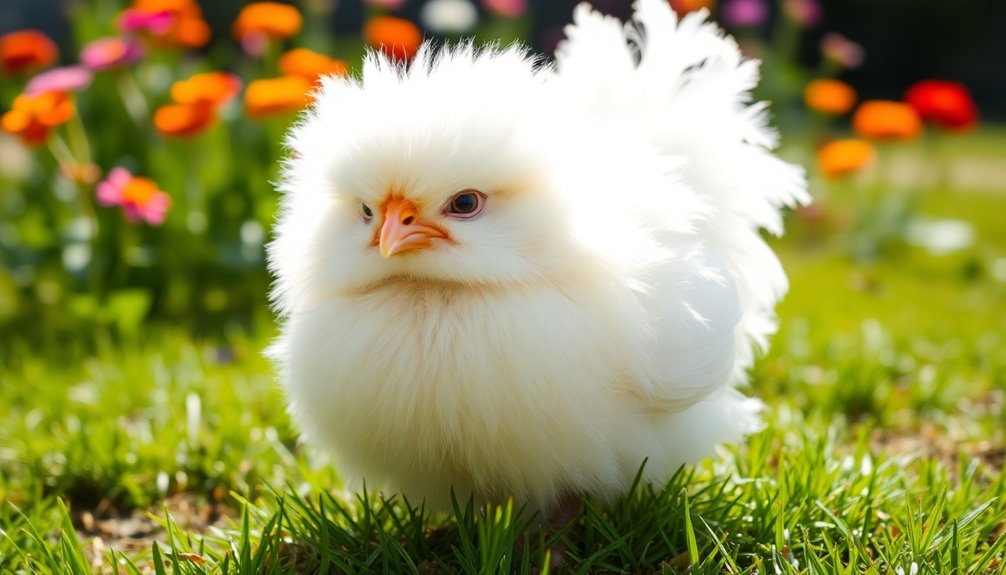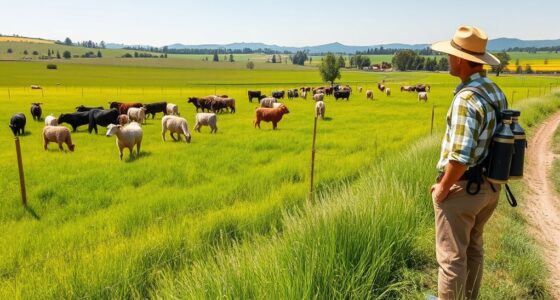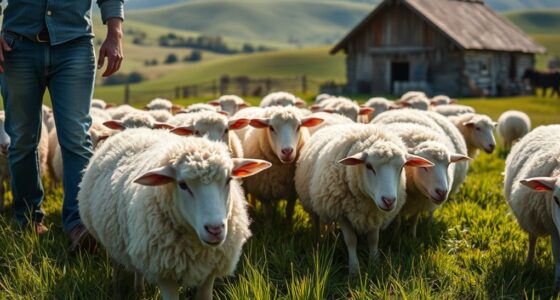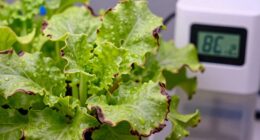To care for your horses, make sure they have strong fencing and shelter from harsh weather. Provide high-quality forage and fresh water daily, along with salt blocks. Regular vet check-ups and vaccinations are essential, as is a suitable deworming program. Daily grooming and hoof care keep them healthy too. Don't forget to inspect pastures for safety regularly. Stick around to discover more about creating an ideal environment for your horses' well-being!
Key Takeaways
- Ensure strong fencing and avoid dangerous materials to keep horses safe and contained.
- Provide high-quality forage and clean water, meeting nutritional needs for optimal health.
- Schedule regular veterinary check-ups, vaccinations, and dental exams to maintain overall health.
- Implement effective manure management and regular hoof care to prevent health issues.
- Offer shelter and daily turnout to promote mental well-being and natural behaviors.
Basic Care Requirements
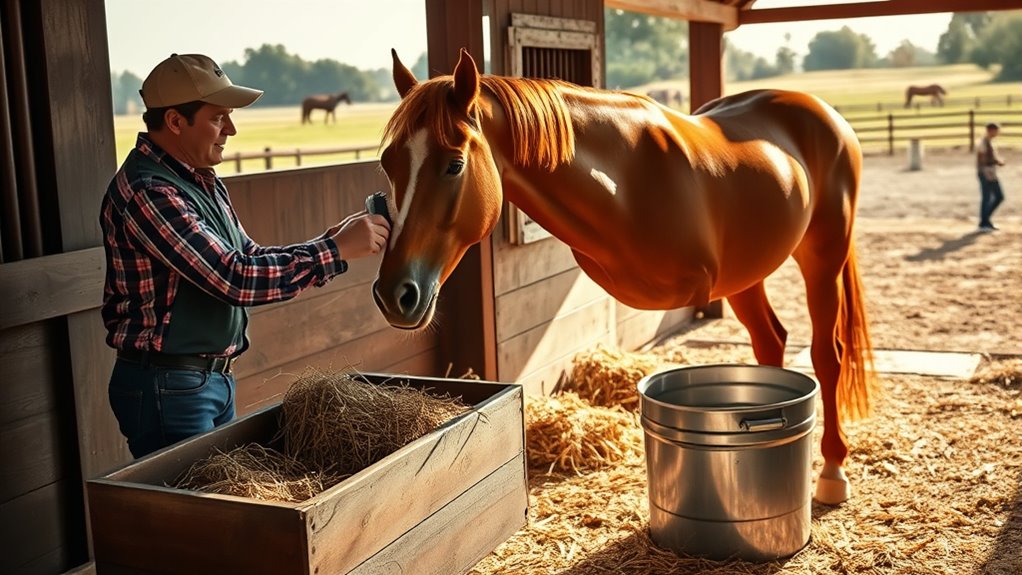
When you care for horses, it's important to ascertain they've a safe and comfortable environment. Start by making sure strong, tight fencing to keep them contained and avoid dangerous materials like barbed wire.
A three-sided shed offers excellent shelter from harsh weather, while regular pasture inspections help you remove sharp objects and check for poisonous plants.
Manure management is vital; a 1,000 lb. horse produces about 50 lbs. of manure daily, so routine cleaning is necessary to maintain health.
When feeding, choose clean, dry areas to prevent mud, which can lead to digestive issues.
Don't forget regular hoof care and consult a veterinarian for any potential health issues to guarantee your horse's happiness and well-being.
Nutritional Needs and Hydration
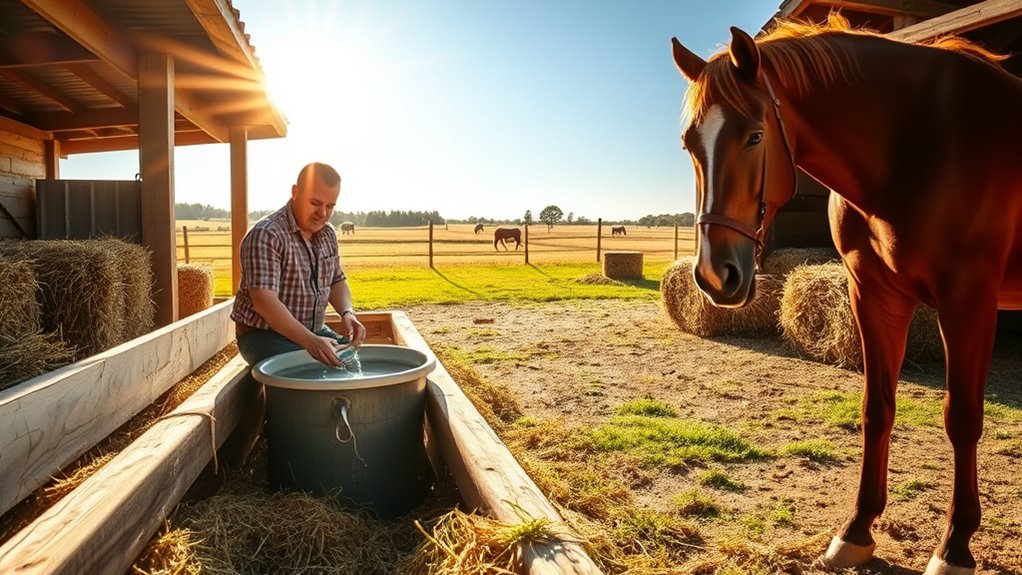
A safe environment sets the stage for your horse's overall health, but proper nutrition and hydration are just as essential.
Your horse's diet should primarily consist of high-quality forage, with about 2% to 2.5% of their body weight in hay daily—roughly 15-20 lbs for an average 1,000 lb horse.
A high-quality forage diet is vital, providing 2% to 2.5% of your horse's body weight in hay daily.
Confirm fresh, clean water is available at all times, as horses typically drink 5 to 15 gallons per day, especially in warmer months.
Don't forget to provide a trace mineral and salt block, offering around 25 grams of salt daily.
Make dietary changes gradually to avoid digestive issues like colic, and consider electrolyte supplements during hot weather or after heavy exercise to maintain proper hydration.
Health Maintenance and Veterinary Care
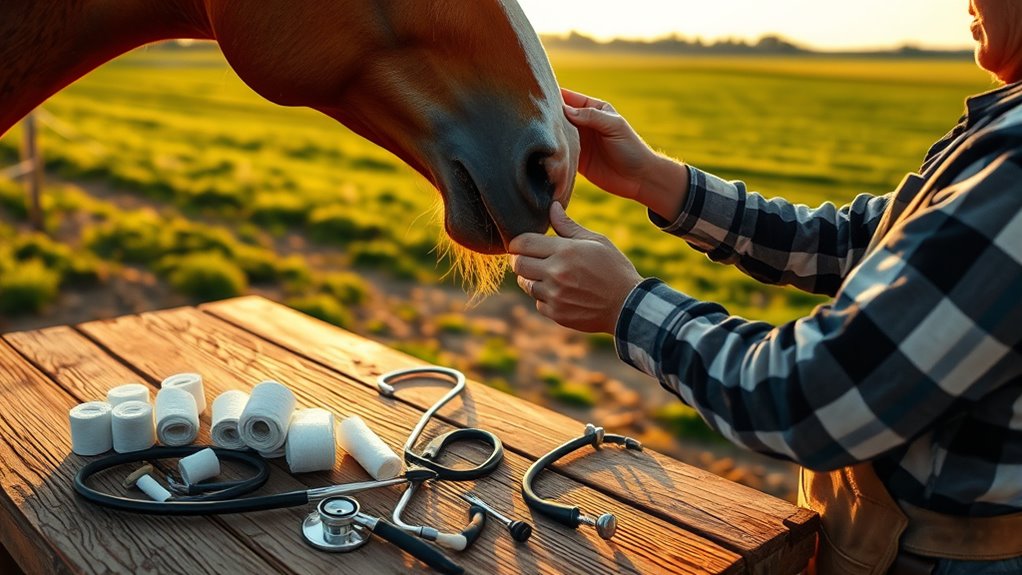
Regular veterinary care is vital for your horse's health and well-being. Schedule regular veterinary check-ups at least once a year, and consider two visits for senior horses to monitor their overall health.
Make certain vaccinations are tailored to your horse's needs, with basic ones administered once or twice a year. Implement a deworming program based on fecal egg count tests to determine the right dewormer and frequency.
Yearly dental exams are essential; floating may be needed to prevent choking, colic, and weight loss.
Don't forget to maintain a well-stocked first aid kit for emergencies, allowing you to address injuries or health issues promptly.
Prioritizing these practices will help keep your horse healthy and happy.
Shelter and Housing Considerations
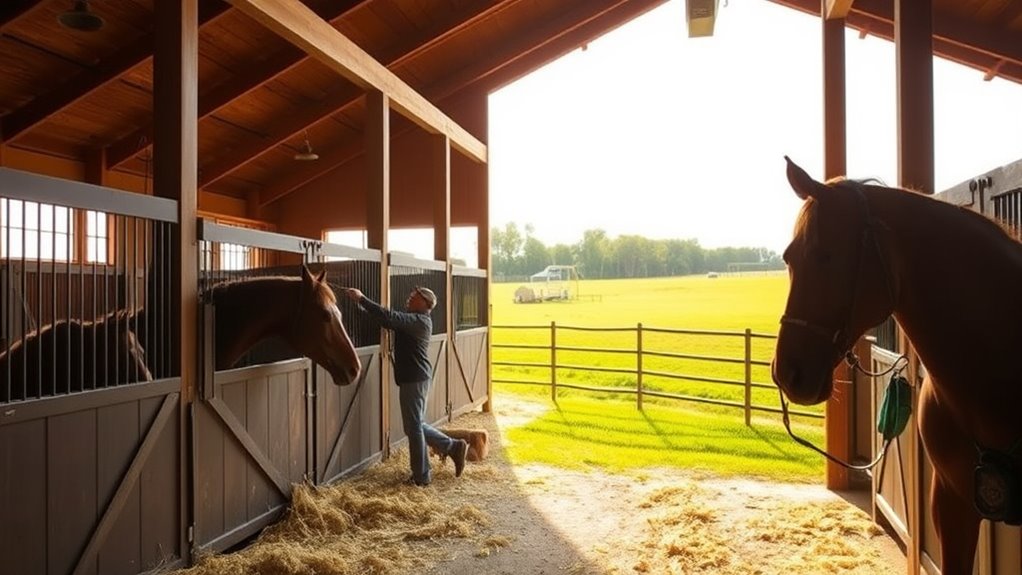
Providing your horse with appropriate shelter and housing is essential for their comfort and well-being. Guarantee each stall is at least 12×12 feet for a 1,000-pound horse, adjusting for larger breeds to promote comfort.
Providing adequate shelter and spacious stalls is vital for your horse's comfort and overall well-being.
A three-sided shed provides effective shelter from elements while allowing for proper airflow and ventilation, critical for maintaining respiratory health.
Daily turnout is important, as it supports your horse's mental and physical health by encouraging natural behaviors and preventing boredom.
Regular inspections of pasture are necessary to remove sharp objects and check for poisonous plants, guaranteeing a safe environment for your horse.
Grooming and Hoof Care Essentials
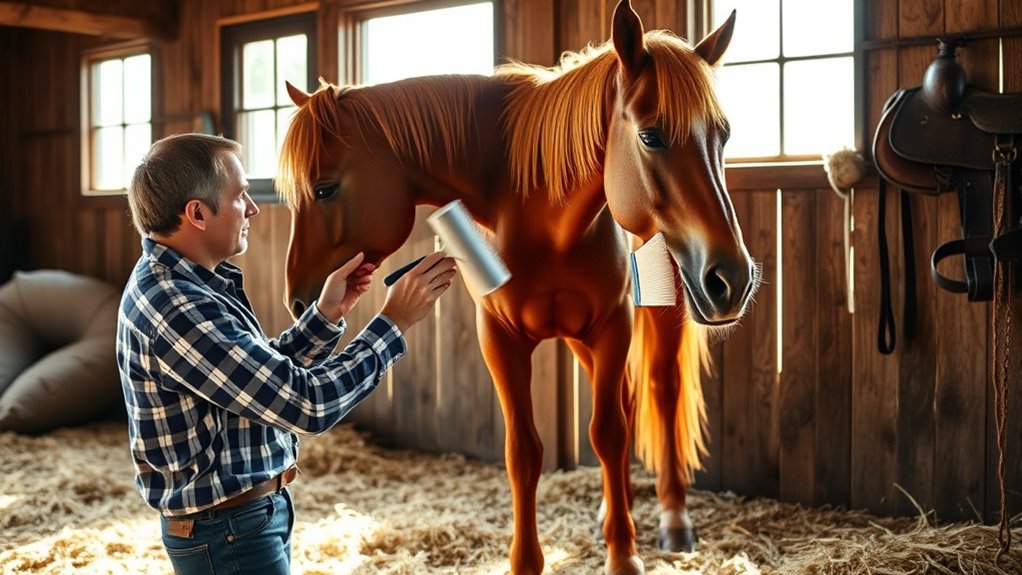
When you prioritize grooming and hoof care, you're not just keeping your horse looking good—you're also promoting their overall health and well-being. Regular grooming helps maintain coat health, prevents skin issues, and fosters a strong bond between you and your horse. Daily hoof care means you should clean and inspect hooves to avoid problems like thrush and lameness. Remember to trim hooves every 6 to 8 weeks. Don't forget to check your horses' teeth with a veterinarian once or twice a year to prevent dental issues.
| Grooming Tools | Purpose | Frequency |
|---|---|---|
| Stiff Brush | Remove dirt and debris | Daily |
| Hoof Pick | Clean hooves | Daily |
| Soft Brush | Polish coat | As needed |
Frequently Asked Questions
What Is the 20 Rule for Horses?
The 20 Rule for horses suggests they should eat 1.5% to 2% of their body weight in forage daily. For a 1,000-pound horse, that's around 15 to 20 pounds of hay.
This guideline reflects a horse's natural grazing instinct, as they typically graze for 17 to 20 hours each day.
If a horse consumes less than 1% of its body weight in forage, it could face serious digestive issues like colic or laminitis.
What Are the Basics of Handling Horses?
When handling horses, always approach them calmly from the side to avoid startling them.
Use a properly fitted halter and lead rope for safety and control. Keep a consistent routine to build trust and reduce stress.
When leading, maintain a short but loose lead rope, allowing the horse some freedom. Pay close attention to their body language; any signs of discomfort or agitation mean you should adjust your handling approach accordingly.
What Do Farmers Do With Horses?
Farmers use horses for various tasks that enhance their efficiency on the farm. You might rely on them for transportation, herding cattle, or pulling equipment, leveraging their strength and agility.
Beyond work, you can also keep horses for recreational purposes, like riding or competing, which fosters community engagement.
What Is the Three-Second Rule for Horses?
The three-second rule for horses is like a golden rule in the equine world!
It says you shouldn't keep your horse cooped up in a stall for more than three seconds without letting them socialize or play.
This guideline's all about preventing boredom and stress.
Conclusion
Caring for horses isn't just about meeting basic needs; it's about creating a bond that flourishes with attention and love. Picture a well-fed horse grazing peacefully in a cozy shelter, its coat shining from a recent grooming. Regular vet visits keep it healthy, while clean water and balanced meals fuel its spirit. By embracing these essentials, you'll not only guarantee your horse thrives, but you'll also enjoy the rewarding journey of companionship and trust.



